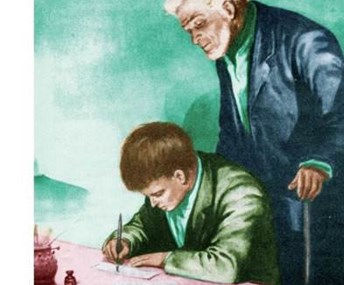The Sardinian Drummer-boy.

On the first day of the battle of Custoza, on the 24th of July, 1848, about sixty soldiers, belonging to an infantry regiment of our army, who had been sent to an elevation to occupy an isolated house, suddenly found themselves assaulted by two companies of Austrian soldiers, who, showering them with bullets from various quarters, hardly gave them time to take refuge in the house and to barricade the doors, after leaving several dead and wounded on the field. Having barred the doors, our men ran in haste to the windows of the ground floor and the first story, and began to fire brisk discharges at their assailants, who, approaching gradually, ranged in a semicircle, made vigorous reply. The sixty Italian soldiers were commanded by two non-commissioned officers and a captain, a tall, dry, austere old man, with white hair and mustache; and with them there was a Sardinian drummer-boy, a lad of a little over fourteen, who did not look twelve, small, with an olive-brown complexion, and two small, deep, sparkling eyes. The captain directed the defence from a room on the first floor, launching commands that seemed like pistol-shots, and no sign of emotion was visible on his iron countenance. The drummer-boy, a little pale, but firm on his legs, had jumped upon a table, and was holding fast to the wall and stretching out his neck in order to gaze out of the windows, and athwart the smoke on the fields he saw the white uniforms of the Austrians, who were slowly advancing. The house was situated at the summit of a steep declivity, and on the side of the slope it had but one high window, corresponding to a chamber in the roof: therefore the Austrians did not threaten the house from that quarter, and the slope was free; the fire beat only upon the front and the two ends.












